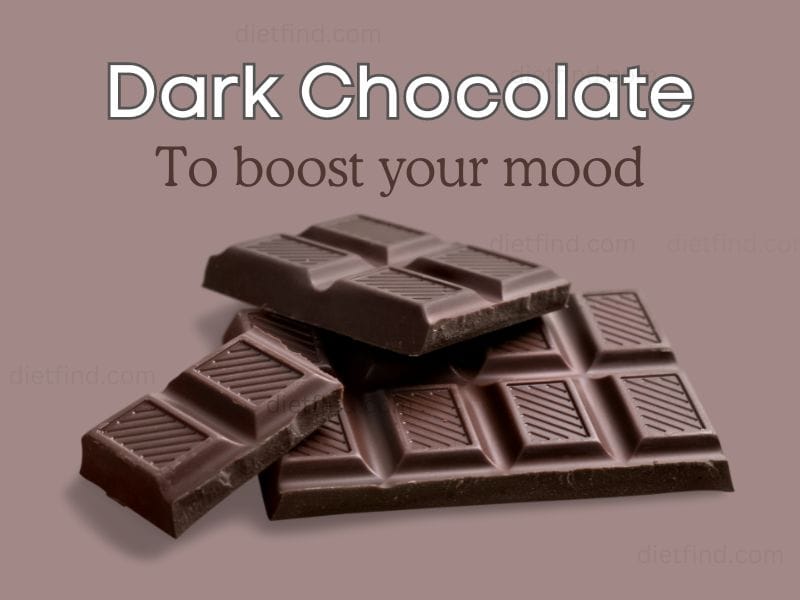Introduction to Chocolate and Mood
Chocolate, a delight savored across the globe, holds a special place not just in our palates but also in our psyche. The allure of chocolate transcends mere taste, often being linked to mood enhancement and emotional comfort. In this exploration, we delve into the intriguing connection between chocolate and mood, unraveling the scientific perspective that lies beneath the surface of this sweet indulgence.
Introduction to Chocolate’s Impact on Mood
Chocolate’s ability to uplift spirits is not just a matter of folklore; it’s a subject of keen scientific interest. This delectable treat, often associated with love and happiness, has been under the microscope for its potential to positively affect mood. Researchers and chocolate aficionados alike are fascinated by how this simple confectionery can evoke such profound emotional responses. Here, we embark on a journey to understand the science behind chocolate-induced joy.
The Scientific Interest in Chocolate and Mood
The scientific community has long been intrigued by the potential mood-enhancing properties of chocolate. This interest has led to a plethora of studies and research endeavors aimed at deciphering the complex relationship between chocolate consumption and emotional well-being. From examining the constituents of chocolate to understanding its physiological impact, scientists are unraveling the mysteries of this ancient treat. A notable study published in the Loma Linda University News revealed that consuming dark chocolate, particularly those with a high concentration of cacao, showed positive effects on stress levels, mood, and even cognitive functions like memory and immunity.
Overview of Key Components of Chocolate
The secret behind chocolate’s mood-altering capabilities lies in its rich array of components. Chocolate is made from the fermented, roasted, and finely ground seeds of the Theobroma cacao tree. Each chocolate bar, especially those labeled as “70 percent”, contains a significant amount of ground cacao, which is a powerhouse of various phytochemicals. These include:
- Polyphenols: Mostly flavanols and proanthocyanidins, these compounds are known for their antioxidant properties. They play a pivotal role in protecting the brain and enhancing cognitive functions.
- Methylxanthines: Predominantly theobromine, these are known for their stimulating effects on the central nervous system, contributing to increased mental alertness and energy levels.
- Phenylethylamine (PEA): This natural mood enhancer stimulates the release of endorphins in the brain, fostering feelings of happiness and contentment.
The polyphenols and methylxanthines in chocolate are believed to be the key players in its therapeutic effects. Through their multiple actions in the body, these compounds not only boost brain health but also contribute to the regulation of mood and emotional well-being. As such, the health benefits of chocolate, particularly dark chocolate, extend far beyond its delightful taste.

Scientific Studies on Chocolate and Mood
The exploration of chocolate’s impact on our mood is not merely anecdotal; it’s backed by scientific inquiry. Numerous studies have delved into understanding how this beloved treat influences our emotional state, with results revealing fascinating insights. This section presents an in-depth analysis of scientific research on chocolate’s effect on mood, offering a closer look at the empirical evidence supporting the chocolate-mood connection.
In-depth Analysis of Scientific Studies
Scientific endeavors have probed various dimensions of how chocolate consumption affects mood. Researchers have looked at both the immediate and long-term impacts, uncovering intriguing results:
- Short-term Effects: Some studies have shown that chocolate consumption can lead to an improvement in mood in the short term. This is thought to be due to the rapid release of endorphins triggered by chocolate’s key ingredients.
- Long-term Effects: The long-term effects of chocolate on mood are more complex and less clear. While some research indicates a sustained positive impact, other studies suggest that these effects may diminish over time or depend on the frequency and quantity of chocolate consumption.
One particularly noteworthy study, published in Critical Reviews in Food Science and Nutrition, highlighted the potential psychological benefits of chocolate. While the data is limited, it suggests a promising link between chocolate consumption and a decrease in depressive symptoms or an elevation in mood. Another study, involving over 13,000 American adults, found that regular consumption of dark chocolate significantly reduced the odds of developing depressive symptoms compared to those who did not consume chocolate.
The Role of Dark Chocolate in Mood Enhancement
When it comes to mood enhancement, not all chocolate is created equal. Dark chocolate, in particular, has been the focus of several studies due to its higher concentration of cocoa and lower sugar content. The results are compelling:
- Dark Chocolate and Depression: People who consume dark chocolate regularly are less likely to report depressive symptoms. This effect is attributed to the high concentration of mood-boosting compounds found in dark chocolate, such as flavonoids and theobromine.
- Cognitive Function and Mood: Dark chocolate’s benefits extend beyond just mood regulation. Studies have shown that it can also positively impact cognitive function, contributing to enhanced memory and alertness.
Interestingly, the benefits of dark chocolate in mood enhancement are evident even when controlling for factors like age, education level, income, body weight, and chronic health conditions. This suggests a more direct role of dark chocolate in influencing mood.
Comparative Analysis: Milk Chocolate vs. Dark Chocolate
The debate between milk chocolate and dark chocolate extends to their respective impacts on mood and health:
- Milk Chocolate: While delicious, milk chocolate typically contains higher amounts of sugar and lower cocoa content. This composition may diminish the potential mood-enhancing benefits found in its darker counterpart.
- Dark Chocolate: Boasting a higher percentage of cocoa, dark chocolate is rich in phytochemicals that contribute to its mood-boosting properties. It’s important to choose dark chocolate with at least 70% cocoa to maximize these benefits.
The choice of chocolate type plays a crucial role in reaping the mood and cognitive benefits associated with chocolate consumption. Moderation is key, however, as excessive consumption, especially of chocolates high in sugar and fat, can negate these benefits.
Understanding the Mechanisms
The intriguing relationship between chocolate and mood enhancement is not just a sweet coincidence. It’s grounded in the realm of neuroscience and biochemistry. This part of the article delves into the scientific mechanisms underlying how chocolate influences our brain functions and, consequently, our mood. We examine the specific components in chocolate and their direct impact on cognitive and emotional processes.
How Chocolate Affects the Brain
Chocolate’s influence on our mood stems from its unique blend of psychoactive compounds. These compounds interact with various neurotransmitters in the brain, responsible for regulating mood and emotions:
- Endorphin Release: Chocolate stimulates the release of endorphins, the body’s natural “feel-good” chemicals. This release can produce a euphoric sensation, akin to the “runner’s high” experienced after physical exercise.
- Neurotransmitter Modulation: Chocolate also contains ingredients that affect neurotransmitters like serotonin and dopamine, which are key players in mood regulation. For instance, phenylethylamine (PEA) in chocolate is known to enhance mood by stimulating the release of these neurotransmitters.
- Stress Reduction: The flavonoids in chocolate have been found to reduce stress hormone levels, further contributing to its mood-enhancing effects. By lowering stress, chocolate helps foster a sense of relaxation and well-being.
The specific ways in which chocolate components, such as flavanols and methylxanthines, improve mood and cognitive functions are still being researched. However, the current understanding points to a significant impact of these compounds on our emotional state and mental acuity.
The Role of Antioxidants in Mood Regulation
Chocolate, particularly dark chocolate, is rich in antioxidants. These antioxidants, predominantly flavonoids, play a crucial role in mood regulation:
- Brain Protection: Antioxidants in chocolate help protect the brain from oxidative stress, thereby enhancing cognitive functions and overall brain health.
- Mood Improvement: These compounds have been linked to improved mood states, offering a natural way to alleviate symptoms of depression and anxiety.
- Cognitive Enhancement: Research suggests that chocolate consumption can lead to improved cognitive performance, especially in tasks involving memory and attention.
The mood-enhancing effects of chocolate can be attributed to the synergistic action of its antioxidants and other bioactive compounds. These findings underscore the potential role of chocolate as a natural mood booster and cognitive enhancer.
Chocolate’s Impact on Cognitive Function
The cognitive benefits of chocolate are an integral part of its appeal. Studies have shown that chocolate, especially dark varieties rich in flavanols, can positively impact cognitive functions:
- Memory and Learning: Flavanols in chocolate enhance brain function, particularly in areas associated with learning and memory, like the hippocampus.
- Neurogenesis: These compounds promote the formation of new neurons and improve the functioning of existing ones, fostering better cognitive health.
- Increased Blood Flow: Chocolate consumption has been linked to increased blood flow to the brain, which is essential for maintaining cognitive performance.
- Neural Protection: The antioxidants in chocolate help protect neurons from damage, supporting overall brain health and functionality.
These effects of chocolate on cognitive function and mood underscore its potential as a dietary supplement for enhancing mental health and well-being. By incorporating moderate amounts of high-quality dark chocolate into their diet, individuals can potentially benefit from these cognitive and mood-enhancing properties.

Practical Considerations and FAQs
While the benefits of chocolate on mood and cognitive function are compelling, it’s essential to consider the practical aspects of incorporating chocolate into a healthy diet. This final section provides guidelines for chocolate consumption and addresses frequently asked questions, helping you make informed choices about indulging in this delightful treat.
Guidelines for Chocolate Consumption
To harness the mood and cognitive benefits of chocolate, it’s crucial to be mindful of the type and amount consumed:
- Choose Dark Chocolate: Opt for dark chocolate with a high cocoa content (at least 70%). This ensures a higher concentration of mood-boosting compounds like flavonoids and theobromine.
- Moderation is Key: While chocolate can be beneficial, excessive consumption can lead to negative health consequences due to high sugar and fat content. Moderation in chocolate intake is essential for balancing its benefits with overall health.
- Incorporate Mindfully: Include chocolate as part of a balanced diet. Pairing it with fruits or nuts can enhance its health benefits and contribute to a more nutritious snack.
It’s important to remember that while chocolate can be a delightful addition to your diet, it should not be relied upon as the sole method for mood enhancement or cognitive improvement. A comprehensive approach to health and well-being, incorporating a balanced diet, regular exercise, and adequate sleep, is essential for maintaining optimal mental and physical health.
Frequently Asked Questions (FAQs)
In response to common queries about chocolate and its impact on mood, here are answers to some frequently asked questions:
- Can chocolate really improve mood? Yes, chocolate, especially dark chocolate, contains compounds that can enhance mood. Components like flavonoids and methylxanthines play a role in this effect.
- How much chocolate should I eat for mood benefits? There is no one-size-fits-all answer, but moderation is key. A small piece of dark chocolate daily can be beneficial without the risks associated with high sugar and fat intake.
- Is chocolate a substitute for professional mental health care? No, chocolate is not a substitute for professional mental health care. If you are experiencing symptoms of depression or other mental health issues, it is important to seek professional help.
- Does the type of chocolate matter? Yes, the type of chocolate matters. Dark chocolate with a high percentage of cocoa is more beneficial for mood enhancement compared to milk chocolate or chocolate with lower cocoa content.
By understanding these practical aspects and common concerns, you can enjoy chocolate in a way that contributes positively to your mood and overall health. Remember, the key to benefiting from chocolate’s mood-enhancing properties lies in choosing the right kind and consuming it in moderation as part of a healthy lifestyle.
In conclusion, the journey through the world of chocolate and its impact on mood unveils a fascinating interplay between this beloved treat and our emotional well-being. From its rich array of mood-boosting compounds to the nuances of its consumption, chocolate offers a delightful and scientifically supported path to enhancing mood and cognitive function. As we savor each bite, we can appreciate not only its taste but also its potential to bring a touch of joy and mental clarity to our lives.
© 2023 by DietFind.com. All rights reserved. No part of this document may be reproduced or transmitted in any form or by any means, electronic, mechanical, photocopying, recording, or otherwise, without prior written permission of DietFind.com.

